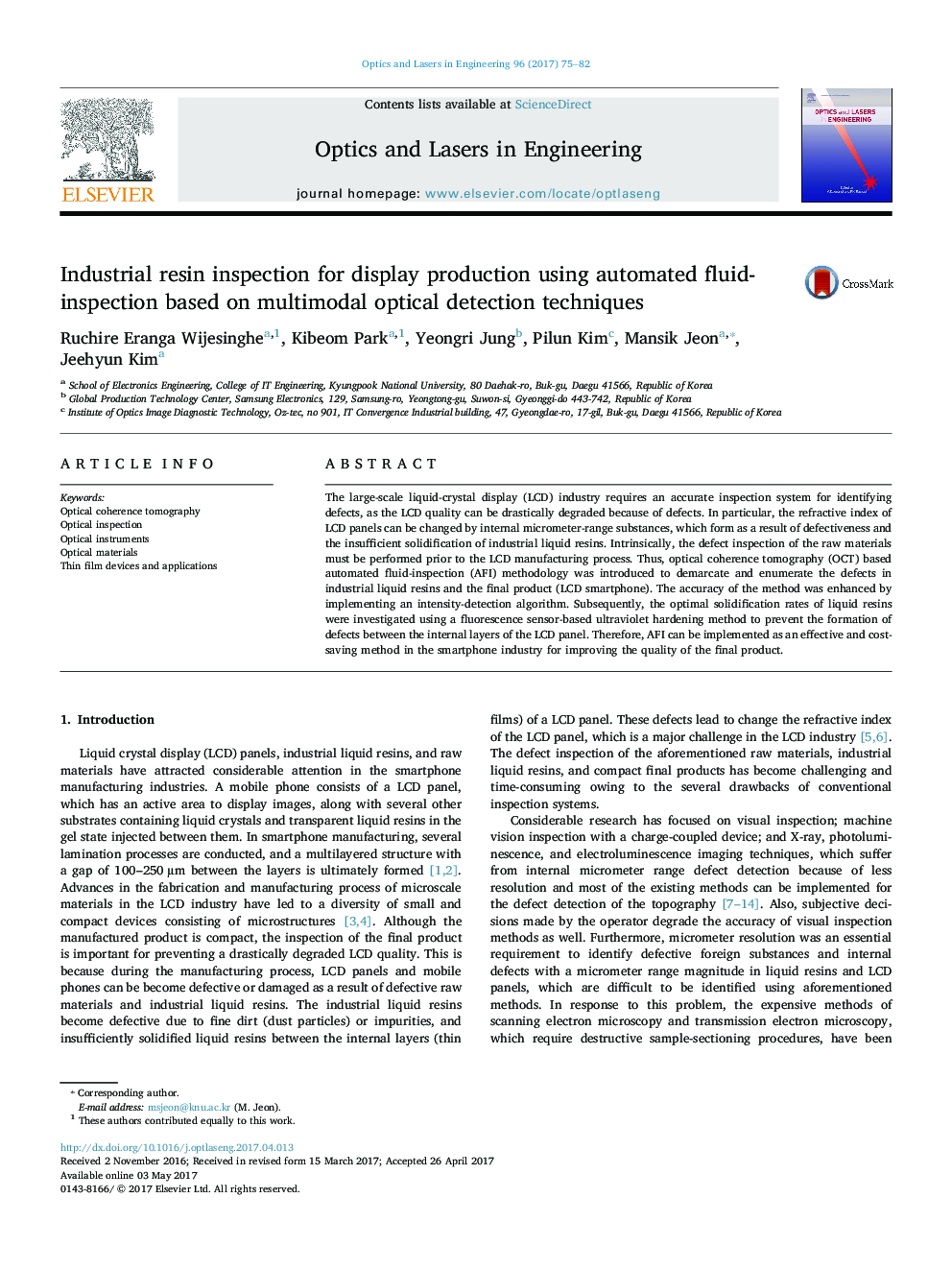| Article ID | Journal | Published Year | Pages | File Type |
|---|---|---|---|---|
| 5007712 | Optics and Lasers in Engineering | 2017 | 8 Pages |
â¢OCT based automated fluid-inspection (AFI) methodology to demarcate and enumerate the defects in industrial resins and LCD smartphone.â¢The accuracy of the method was enhanced by implementing an intensity-detection algorithm.â¢(AFI) methodology demarcates and enumerates defects of industrial liquid resins for LCD production.â¢The resin hardening rate and the stiffness of various liquid resins were confirmed by integrating a fluorescence detector-based ultraviolet (UV) hardening system.â¢AFI is a multitasking system that provides a powerful means to the smartphone industry.
The large-scale liquid-crystal display (LCD) industry requires an accurate inspection system for identifying defects, as the LCD quality can be drastically degraded because of defects. In particular, the refractive index of LCD panels can be changed by internal micrometer-range substances, which form as a result of defectiveness and the insufficient solidification of industrial liquid resins. Intrinsically, the defect inspection of the raw materials must be performed prior to the LCD manufacturing process. Thus, optical coherence tomography (OCT) based automated fluid-inspection (AFI) methodology was introduced to demarcate and enumerate the defects in industrial liquid resins and the final product (LCD smartphone). The accuracy of the method was enhanced by implementing an intensity-detection algorithm. Subsequently, the optimal solidification rates of liquid resins were investigated using a fluorescence sensor-based ultraviolet hardening method to prevent the formation of defects between the internal layers of the LCD panel. Therefore, AFI can be implemented as an effective and cost-saving method in the smartphone industry for improving the quality of the final product.
